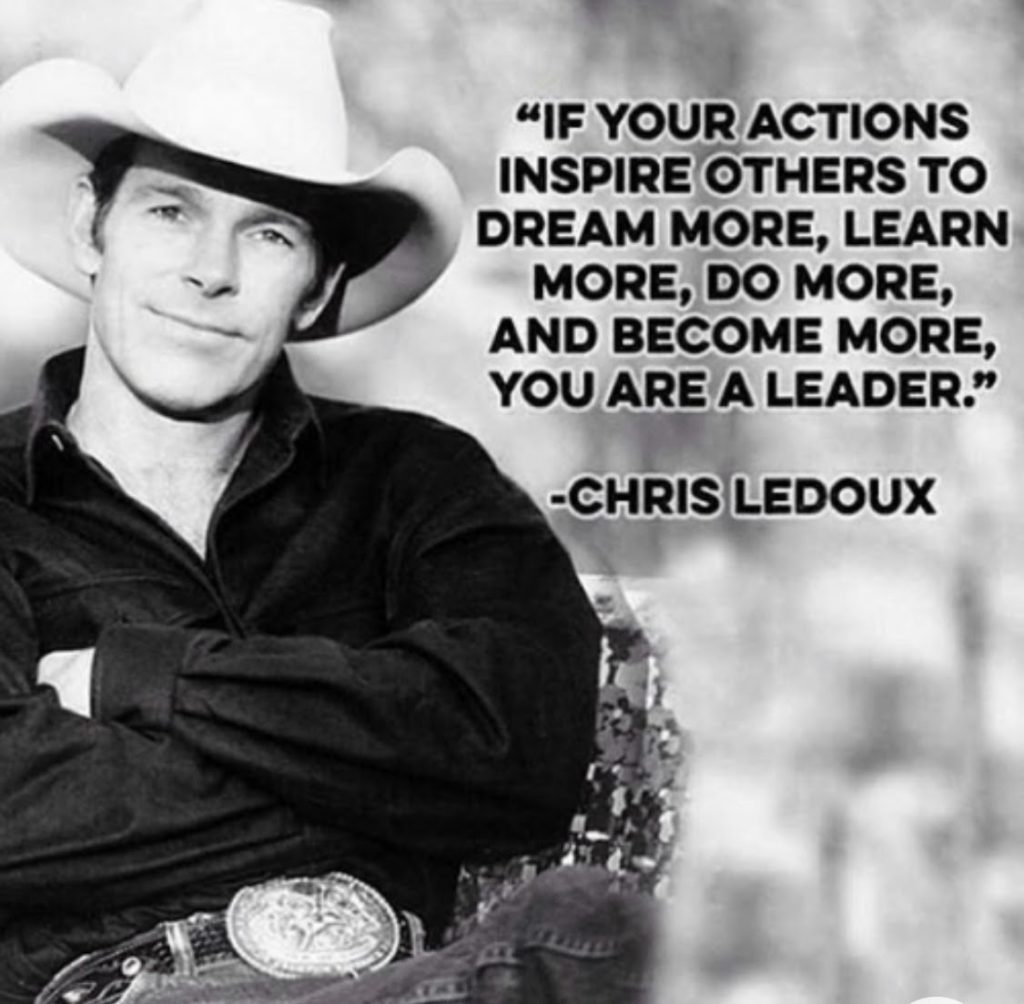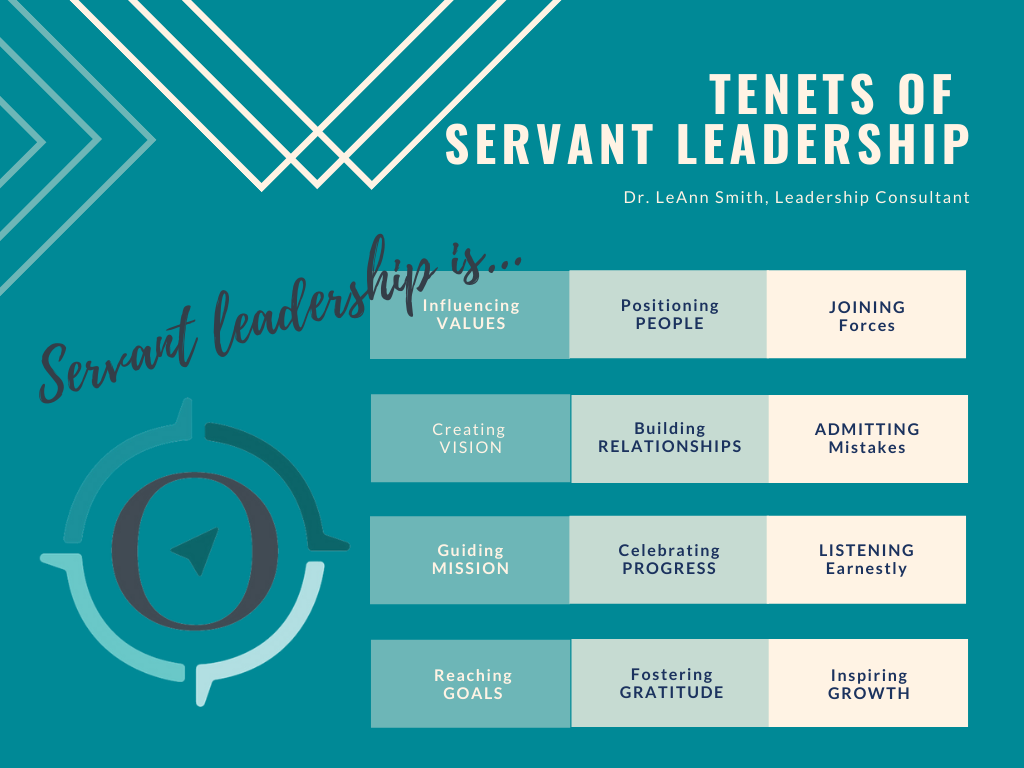Prior to becoming a servant leader
The second in command of my organization appeared at the door of my office and asked if I was ready to become the new second in command. Apparently there had been an interesting board meeting the night before and the CEO was not returning. My boss was now the interim head of the organization and he recommended to the board that I take his former position.
I was 27, and there had never been a female in a top leadership position in that organization. The changing of the guard caused fear and division and created tension among employees and stakeholders – as well as an awkward working environment. I thought I would have to prove myself competent to take on a leadership position in such an unstable and chaotic organization. I was uncertain if I even wanted that position.
With some persuasion, along with deep information seeking discussions, I eventually accepted the position. Most of the employees were approximately twenty to thirty years older than me.
The first year was exciting and challenging. I worried that in order to be the leader these seasoned veterans deserved, I would need to know more than they knew, so I continued my post-graduate education.
[News flash…while the education was extremely valuable, I’d never be able to catch up with the wisdom the other employees had gained through years of experience in the field.]
I struggled a lot my first few years because no matter how hard I worked – or how much I studied and read professional books, articles, and research – I just didn’t feel like I was the leader my team deserved.

An epiphany
Then, one night I had an epiphany, and divine intervention changed my view of how I could succeed and be the leader I dreamed of becoming. A thought struck me…it may have been during one of those nights I had worked entirely too late and my conscious thoughts were beginning to blur with my subconscious thoughts. My inner voice said, “You don’t have to know more, work yourself to death, or be perfect to be a great leader. You just need to help people be their best. Just be a servant, and you’ll be a leader.”
Post-epiphany
“Everybody can be great…because anybody can serve.” ~ Martin Luther King Jr.
After my epiphany, the struggles I had experienced early on seemed to dissipate. Almost overnight my load became lighter, and my team became more inspired. More time was spent listening with the purpose to understand instead of formulating my response while others spoke. Our collective sense of confidence and trust grew. When my coworkers overcame obstacles and demonstrated growth toward reaching their goals, I was quick to help them celebrate their progress. I focused less on my to do list and more on creating meaningful relationships which empowered us to accomplish more together. When my team became more inspired and connected, their struggles also seemed to lessen.
When I saw someone in need, I stepped up to help. At first people looked at me as if I was confused. Why would the second in command be helping with a chore that some consider a menial task? Sometimes I assisted the janitor, and other times I helped the CEO.
Guess what? I felt pretty darn good filling both of those rolls, because I was leading through serving and becoming a better, more humble and more grateful human in the process.
“It is amazing what you can accomplish if you do not care who gets the credit.” ~ Harry S. Truman
As days and weeks went by, I continued to join forces with the people I led. We worked together and communicated on a much deeper level than before. Their natural talents and strengths became more apparent. I could see that some shifts of positions would be needed. Helping coworkers reach their goals, by making sure team members were in positions in which they could shine, became of paramount importance in my work life. These changes were not always easy, but they served the good of the whole.
Through this transformative process, I still made plenty of mistakes. I began to accept that I was far from perfect, and that was okay. Part of growing as a servant leader was recognizing there is strength in the struggle.
I stumbled in private and I even crashed and burned in public. When this happened I was able to turn to the team and own my mistakes. Doing so showed I was willing to take responsibility when things went wrong. Being willing to take risks, fail, own it, learn, and start over again helps gain the respect of coworkers.
As I endeavored to further develop my leadership skills, I began to have more clarity for who I was, what I valued, and what I hoped our organization could become. During formal meetings and informal discussions, we began to verbalize why we thought our work was important and where we wanted to be in five and ten years. We dove deeply into formalizing our organization’s values, mission, vision, and goals. We gained clarity and purpose which made our work more impactful.
The process of becoming a servant leader never ends because we can always find new ways to serve. Based on my struggles prior to becoming a servant leader, and my successes as a servant leader, I’ve endeavored to serve you by creating a list of tenants that define servant leadership. My hope is these core ideas will spark inspiration for current and future servant leaders.

Looking Ahead
I look forward to sharing more about each of these tenets of servant leadership in future blogs. Until then, remember everyone can lead. The best leaders aren’t perfect; they just work hard to serve others!


